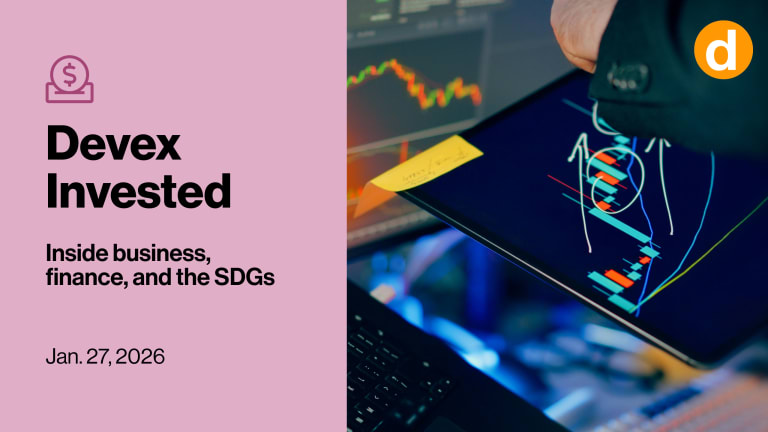
SAN FRANCISCO — Liz Diebold, a principal at the Skoll Foundation, said she cringes when people describe the role she played in a recent blended finance deal with the Overseas Private Investment Corporation and Kiva as paying OPIC’s interest.
“We’re not in the business of paying other people’s interest and fees,” she said during a panel at the Social Capital Markets conference.
To unlock a $10 million loan from the development finance institution to the crowdfunding platform, the Skoll Foundation covered OPIC’s interest payments, while an anonymous donor covered losses due to default.
More from SOCAP 2018:
► Connect the unconnected: Making the economics work
► Using the 'lean startup' methodology to optimize for impact
This creative partnership has resulted in 100,000 microloans — 80 percent of which went to women — across 30 developing countries, and generated a number of lessons for the sector. One of those lessons is that blended finance deals will not realize their potential unless donors and investors become more flexible with the instruments or structures they use.
Taking some risks
As an industry, the sector needs more examples of what blended finance actually looks like, and the kinds of risks these deals may require, Diebold said during a panel at SOCAP.
“Frankly, we need to get comfortable with being uncomfortable,” she said.
The Skoll Foundation could have made a loan to Kiva and gotten the interest itself. But as the foundation looks for ways to engage larger institutional players in supporting Skoll awardees, it saw a real signaling power in using its capital to bring OPIC into the deal, Diebold said.
The partnership with Kiva allowed OPIC to reach social enterprises at a smaller scale than it would otherwise be able to.
“We’re more known for putting together airports and hospitals than we are for things in the smaller scale,” said David Bohigian, executive vice president at OPIC. “We’ve done a lot of work on lending with SMEs, but this is our first retail experience.” Because OPIC has a mandate to return money to taxpayers, it could not risk losing money on the deal, which is why Skoll and the anonymous donor stepped in.
“We need to get comfortable with being uncomfortable.”
— Liz Diebold, principal, Skoll FoundationThe new United States development finance agency created by the Better Utilization of Investment Leading to Development Act, or the BUILD Act, will have an expanded authority to work in blended finance, he said. For example, it will be able to put its own money in as first loss capital.
Not always easy
Last year at SOCAP, Kiva tried and failed to get philanthropists to put forward $1 million to extend the OPIC deal from three years to five.
“It wasn’t sufficiently compelling to the donors that we talked to,” said Premal Shah, co-founder and president of Kiva. “I’ve been surprised even with all this philanthropic leverage that we can present that the uptake has been so slow.”
Shah said he is no longer looking for philanthropic capital to extend the OPIC deal, but explained how the partnership catalyzed a learning journey for Kiva, which is now thinking of ways to create different impact vehicles for return-seeking investors.
There are a few reasons why Kiva may have failed in its efforts to raise an additional $1 million, and they point to some of the incentives that stand in the way of getting outside comfort zones, said John Simon, founder and managing partner of Total Impact Capital, and former executive vice president at OPIC.
First, “it’s tough to feel your money is actually being truly catalytic when Kiva is already mobilizing hundreds of millions of dollars,” he told Devex in an interview. Second, it can be hard for people outside the government to understand why OPIC would need their help. And third, “it’s tough to be the first loss capital when you’re late to the party.”
Diebold said it is important for donors and investors to be clear on what they can and cannot do, but also to be willing to move into the spaces of “what is possible but uncomfortable,” in order to do more meaningful deals.
Until then, she said, “we’re just kind of doing what we would have done anyway but we’re doing it together in one transaction.”








